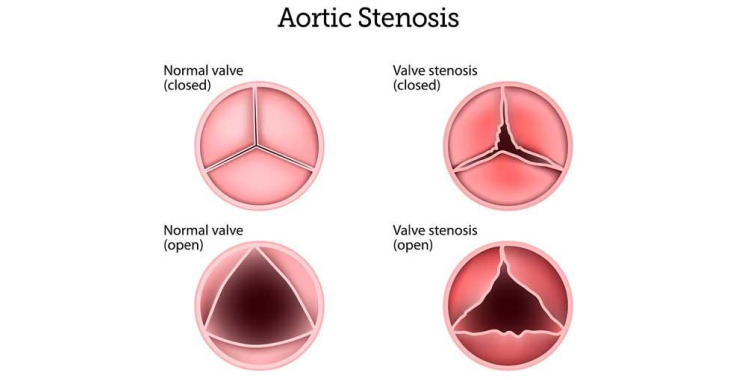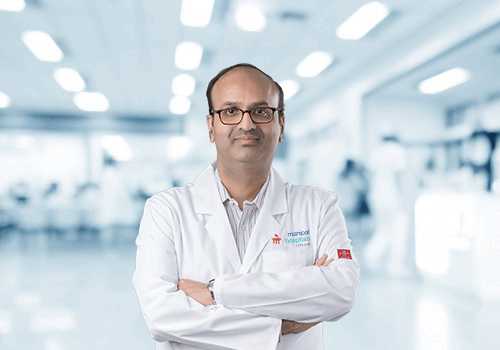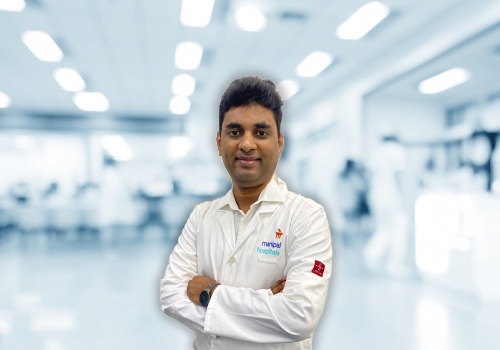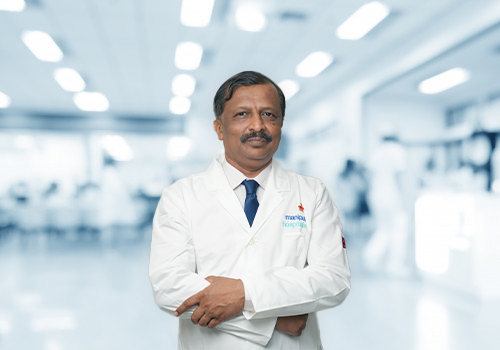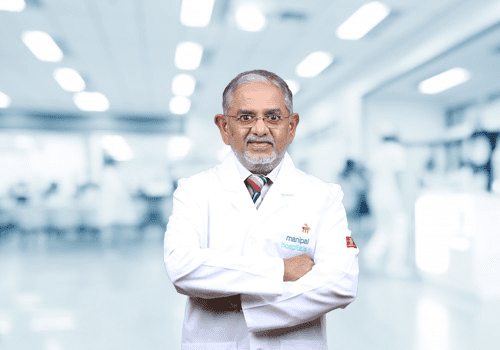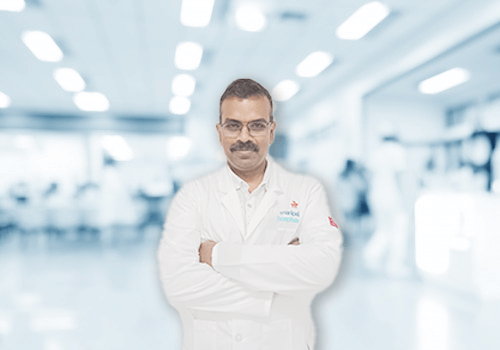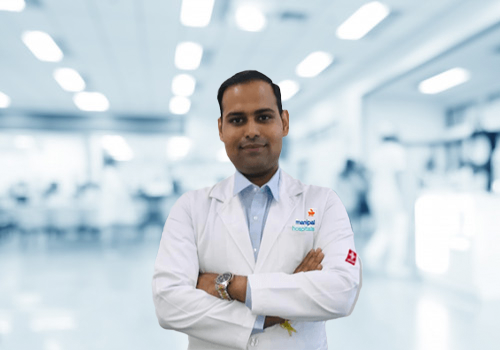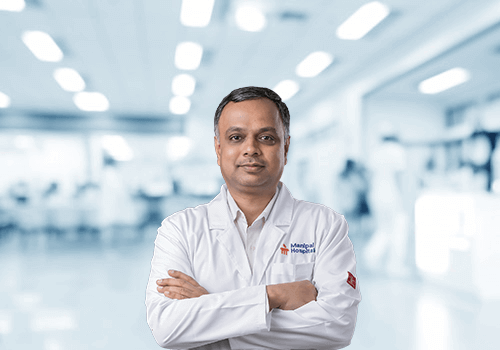Who should undergo TAVI?
Conventionally, treatment for aortic stenosis was by major open heart surgery, which is a complex surgery. With the advent of advanced surgical technologies, it is now possible to avoid open-heart surgery for valve replacement. In present days, the preferred treatment is often by TAVI. This procedure is minimally invasive, has lesser to nil complications, and requires a very short hospital stay, usually requiring only one night of hospital stay after the procedure.
TAVI involves the implantation of an aortic valve in place of the diseased or stenotic valve without actually removing the stenotic valve. With the TAVI approach, a fully expandable valve replacement is achieved at the valve site through a catheter. Once at the site, the new valve expands, takes over the normal function of the valve, and pushes the old valve leaflets out of the way.
Indications of TAVI
-
High-gradient aortic stenosis with symptoms
-
Severe AS when undergoing other cardiac surgery
-
Symptomatic low-flow/low-gradient aortic stenosis
-
Asymptomatic patients with severe aortic stenosis and left ventricular ejection fraction (LVEF) < 50
-
Moderate aortic stenosis and undergoing other cardiac surgery
-
Valve-in-valve procedures for failed prior bioprosthetic valves
Contraindications of TAVI
-
Life expectancy of less than a year due to other comorbidities
-
End-stage renal disease
-
Myocardial infarction in the past 30 days
-
Congenital unicuspid, bicuspid or non-calcified valve
-
Hypertrophic cardiomyopathy
-
Left ventricular ejection fraction less than 20%
-
Severe pulmonary hypertension with right ventricular dysfunction
-
Echocardiographic evidence of intracardiac mass, thrombus, or vegetation
-
Severe mitral regurgitation
What happens before TAVI procedure?
-
Your doctor may suggest you stop eating about six hours before the procedure and stop having any liquids two hours before the procedure. You may be advised to take your regular medications (if any) with sips of water.
-
Inform your doctor about your medical history, such as diabetes, medication history, allergies to any medications, food, or previous reactions to X-ray contrast (dye).
-
In case you are taking blood thinner medications, your cardiologist will ask you to stop the medications temporarily for a few days before the procedure (usually 3 days). However, you may be advised to continue taking your other regular medications.
What happens during TAVI procedure?
-
TAVI is a minimally invasive procedure performed under conscious sedation and local anaesthetic. You will be given a small intravenous line inserted into a vein in your arm for easy administration of medicine and to keep you relaxed and comfortable. You will be fitted with monitors to keep a check on your vitals.
-
Your groin (or sometimes wrist) will be cleaned with an antiseptic, making the area sterile, following which a local anesthetic will be given to make the area numb.
-
A minimum of three insertions of tiny hollow tubes (sheaths) are made in the arteries and veins of the groin, or occasionally the artery in the wrist. These three insertions will serve as access points for the valve and catheters. A temporary pacing cable can also be inserted into the heart through one of the sheaths. Following the insertions, a balloon aortic valvuloplasty (BAV) is carried out to stretch and enlarge the aortic valve and make space for the new valve.
-
During each balloon inflation, your heart will be stimulated to beat more rapidly using the pacing cable. Following the recording of baseline pressure readings, the valve's size will be verified. Before the catheters and sheaths are removed, final X-ray imaging and safety checks will be performed. The pacing cable may be left in place for a few hours if your heart still needs backup support, and the other two sheaths will be taken out and coated in tiny sterile bandages (or a plastic bracelet if the wrist was used as the access site).
-
The whole procedure will take about 1-2 hours.
What happens after the TAVI procedure?
-
After your procedure, you will be shifted to the cardiac investigation unit (CIU) and monitored while you recover. If everything is fine and there are no signs of complications, you will be discharged 1-2 days after the procedure.
-
During discharge, you will be given all the required home-care tips including how to take care of the access sites (groin or the wrist), signs to watch out for that may indicate complications, bleeding control in case of bleeding from the access sites, any medications if necessary, and other instructions as per the requirement.
Risks and Complications of TAVI
TAVI shares similar complications to other cardiac procedures. The procedure related complications include bleeding at the site of insertion, risk of infection, injury to the heart tissue, valves, and blood vessels by the device, which may result in life-threatening conditions. Other potential risks include clot formation in your blood vessels that may either travel through or block your blood vessels and subsequently block the blood flow to other organs, including your lungs, causing breathing difficulties.
Benefits of TAVI
TAVI causes improvement in breathing, which can be caused due to limited blood flow and alleviation of chest pain or discomfort, making it simpler to carry out regular tasks. Many patients experienced improved energy levels and physical ability, making them feel less tired and more capable of handling everyday tasks, making it easier and more enjoyable.
Why Choose Manipal Hospitals Bangalore for TAVI/TAVR?
Manipal Hospitals is one of the best hospitals in Bangalore for advanced cardiac care, particularly in performing Transcatheter Aortic Valve Implantation (TAVI/TAVR) procedures. With a team of highly experienced cardiologists, cardiac surgeons, and interventional specialists, the hospital ensures world-class treatment with precision and compassion at every step. In the last two years, over 80 successful TAVI/TAVR procedures have been carried out across Manipal Hospitals in Bangalore, showcasing high-quality skill and expertise in treating aortic valve stenosis with minimally invasive methods. This growing success reflects Manipal Hospitals’ commitment to innovation, patient safety, and clinical excellence.
By choosing Manipal Hospitals for your TAVI/TAVR procedure, you are assured of:
-
Technologically advanced operating theatres equipped with advanced imaging systems and interventional tools for safe, accurate valve implantation without the need for open-heart surgery.
-
Expert interventional cardiology team with a readily available multidisciplinary team, with proven success in complex structural heart procedures.
-
Personalized care plan with thorough assessment, to ensure best treatment outcomes meeting specific patient needs, enhanced recovery and shorter hospital stay.
-
24/7 Advanced cardiac emergency services, immediate intervention and patient stabilization, particularly for those presenting with acute cardiac symptoms such as valve failure or critical aortic stenosis.
When it comes to your heart and vascular health, choosing the correct hospital makes all the difference. Manipal Hospitals guarantees that you will receive compassionate, skilled, and top-notch care. Avail the best treatment for TAVI procedure in Bangalore now at Manipal Hospitals.
Meet Our Specialists


